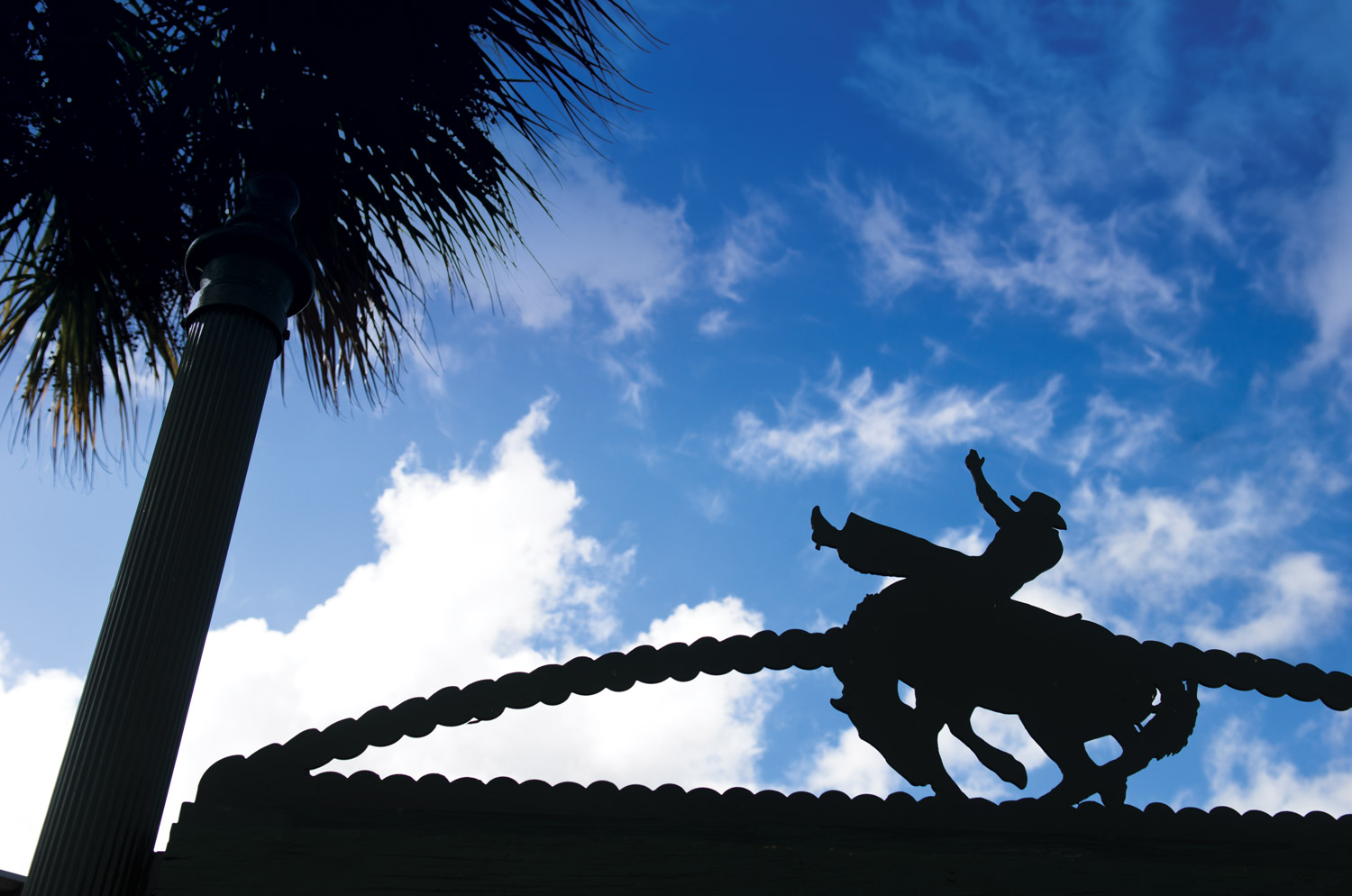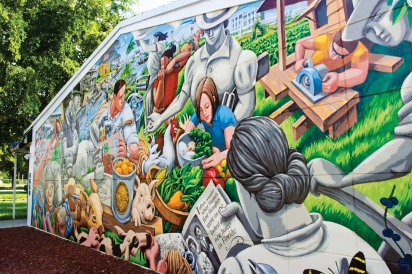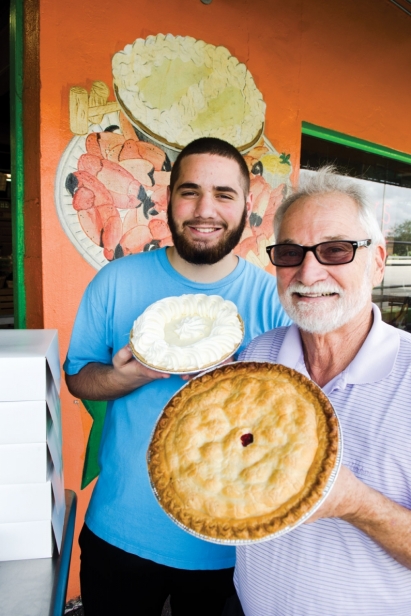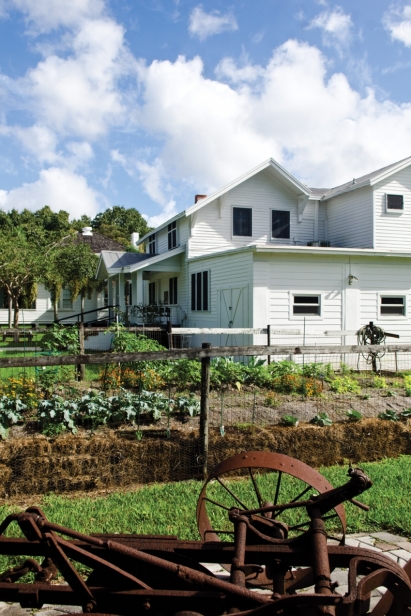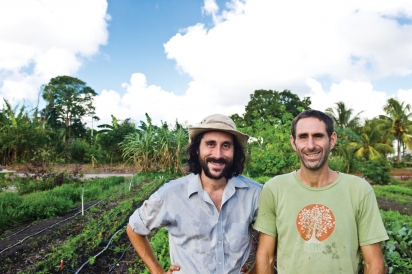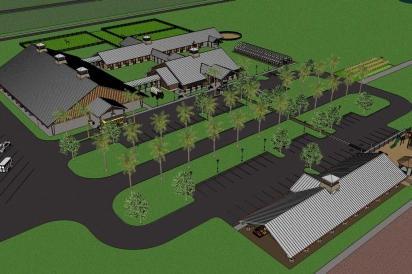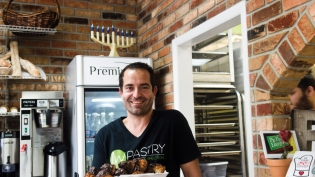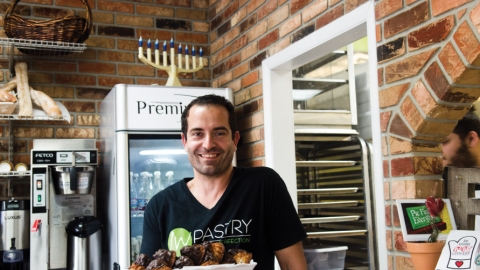Howdy, Davie!
It’s a place of contrasts: quaint downtown Western-motif feed stores and sleek buildings of multiple colleges that form the sprawling South Florida Education Center. Cows grazing only footsteps from the busy intersection of University and Stirling. The tranquility of an organic farm disrupted by the sounds from the interstate. Major highways crisscross the 35 square miles of this central Broward town of 96,000 residents – but so do 150 miles of trails for horses and people, plus acres of green space and parks. Welcome to Davie, a town that proudly embraces its rural, farming and equestrian roots and plans to preserve and showcase them for present and future generations.
Before the town was carved out of Everglades swampland more than a century ago, what is now called Long Key Natural Area was an island complex occupied by the Tequesta Indians and later the Seminoles. Florida Governor Napoleon Bonaparte Broward led efforts to drain the Everglades to create dry land for settlement and crops. One of those settlements was Zona, renamed Davie in 1916 by grateful residents for developer R.P. Davie, who bought land in the area and built a school. Two years later, the Davie School opened its doors, becoming the first permanent school in the Everglades and remaining in use as a school until 1980. Today, the building is a historic and cultural hub on a 10-acre campus that includes two restored houses – the 1912 Viele and Walsh houses – and a replica of a 1909 settler’s shack and outhouse.
Rich History
Many came to the community to farm. The Chaplan family owned property in what’s now Tree Tops Park and sold off acres for citrus tracts. Across from the Long Key Natural Area, Flamingo Groves, now Flamingo Gardens, was founded in 1927 by Floyd L. and Jane Wray. Their orchard grew to 2,000 acres with more than 60 varieties of citrus and a 20-acre citrus laboratory, and became one of South Florida’s first botanical gardens and tourist attractions. Over the years, the Long Key site included a western-themed park called Pioneer City (1966-1971), followed by the Kapok Tree restaurant (1974-1987). In 1990, Broward County bought 151 acres there, and in 2008 opened the Long Key Nature Center. Today, the area includes a 14-acre orange grove, an exhibit hall highlighting the Tequesta and Seminole past, and nature and equestrian trails.
Heralded as the Citrus Center of Broward County at the 1941 First Annual Davie Orange Festival, Davie continued growing its citrus groves, peaking at more than 5,000 acres by the late 1950s. But the citrus industry was moving to central Florida, and today, only a few citrus-packing businesses remain in Davie: Spykes Tropical Nurseries, Flamingo Groves and Bob Roth’s New River Groves, where oversize oranges beckon visitors on Griffin Road. “Dad came to Davie in the 1950s with a 10-acre grove when it was a one-road town,” says Roth. They still ship and sell fruit, but Roth says the family business has adopted new ideas to make up for lost citrus sales. “Coconut water is very popular,” he says. They do a brisk business selling fruit pies, fresh juices and shakes, local honey, fudge and Florida products, generously providing samples and what Roth calls “old-fashioned service.” Outside, they’ve added a new park and picnic area.
Agricultural Past and Present
“Agriculture and citrus are Davie’s roots,” says Leslie Schroder, executive director of the Old Davie School Historical Museum. To showcase the once-vibrant packing house history, the museum is planning an exhibit for 2017 that includes a replica of a 1940s packing house and educational programming. Visitors will see how oranges are scrubbed, waxed and prepared for shipping and can squeeze their own cup of fresh Florida orange juice.
But not all Davie’s agriculture has disappeared – young urban farmers find here the space they need to grow food. Nicolas Chalifour bought a 4.5-acre former palm plantation in 2012 and turned it into Treehugger Organic Farms. They grow tropical fruits, coconuts, sugarcane, ginger, turmeric and row crops to sell at farmers markets at Whole Foods Markets in Fort Lauderdale and Pembroke Pines. Since 1996, Mike Bender of Bender’s Tropical Grove has been selling fruit trees in containers, including multiple varieties of avocados and mangos, sapotes, custard apples, lychee and longans. Another farmer, Jeremy Craw, uses sustainable practices at his Sun Fresh Farm and Ranch.
Preserving the past
No one is more passionate about preserving Davie’s agricultural roots than mayor Judy Paul. In 1974, she rode her horse in the Orange Blossom Parade and has been involved in the city ever since, serving three terms on the city council and now in her third term as mayor. She’s proud to talk about the town’s network of equestrian, bike and multi-use trails and the abundant green space. But the farm park project is the one that’s captured her heart. A retired teacher who taught for 40 years, Paul long dreamed about creating a working farm that people could visit. She set out on a mission to get land and develop it into a facility to serve and educate current and future generations. “We did a rendering, traveled to Tallahassee, got our first grant, and did the same with Broward Parks,” she says. More planning took place and years later, the 84-acre Governor Leroy Collins Farm Park in western Davie is poised for groundbreaking later this year. The park includes an educational farming area for the crops, fruit trees, and recreational trail; a barn/education center with livestock and pastureland; an equestrian area and public trail connection; a playground with farm-themed equipment; butterfly garden; and native landscaping.
An iconic part of Davie’s past is Batten’s Farmers Market, known for its strawberry shakes and petting zoo since opening in 1969. The family market closed in 2008, reopened for a few years, then closed again. Come fall 2016, it will reopen as Marando Farms and Ranch at Davie. “This is my dream come true,” says operator Chelsea Marando of Fort Lauderdale’s Marando Farms, who remembers visiting in its heyday. “It was a happy place – it brought you into the country.” She’s planning to bring back farming on two of the 10 acres, developing a community garden, hosting events and parties, doing honeybees, serving smoothies, hosting farm-to-table meals and pop-ups, raising chickens and having a feed store. “This is what Davie is all about,”she says. “You go out there, you slow down … you go back in time a bit. That’s what I love about the town.”


